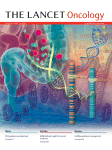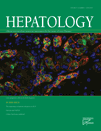抗病毒治疗与肝癌复发风险降低有关
2012-11-16 佚名 EGMN
美国肝病研究学会(AASLD)年会上公布且同时在线发表于《美国医学会杂志》(JAMA 2012;308:1906-13 [doi: 10.1001/2012.jama.11975])的一项台湾研究显示,在“根治性”手术后使用抗病毒药物可降低肝癌复发风险。 研究者表示,该回顾性研究并不能证明这些抗病毒药物与肝癌复发率和死亡率的降低之间存在因果关系。不过,已知核苷类似物可有效抑制慢性肝炎或肝
美国肝病研究学会(AASLD)年会上公布且同时在线发表于《美国医学会杂志》(JAMA 2012;308:1906-13 [doi: 10.1001/2012.jama.11975])的一项台湾研究显示,在“根治性”手术后使用抗病毒药物可降低肝癌复发风险。
研究者表示,该回顾性研究并不能证明这些抗病毒药物与肝癌复发率和死亡率的降低之间存在因果关系。不过,已知核苷类似物可有效抑制慢性肝炎或肝硬化患者的乙肝病毒复制、缓解其他乙肝病毒相关肝病及降低肝细胞癌风险。
在这项研究中,研究者回顾了台湾全民健康保险研究资料库的数据,该资料库覆盖台湾2,500万人口的99%以上。研究者查找到4,569例在6年内接受“根治性”肝切除手术的新诊断乙肝病毒相关肝细胞癌的住院患者。在这些患者中,共518例使用拉米夫定(159例)、恩替卡韦(292例)、替比夫定(36例)或联合使用这些抗病毒药物(31例)治疗至少90天。剩余4,051例患者未使用过任何核苷类似物。这些核苷类似物抗病毒治疗的疗程平均为1.5年。随访患者至肝细胞癌复发、死亡或直至6年研究期结束。
校正竞争性死亡率后发现,核苷类似物使用者的肝细胞癌复发的累计发生率(45.6%)显著低于未使用核苷类似物的患者(54.6%)。在未校正情况下,6年内为降低1例肝细胞癌复发而需治疗的患者数为12例。换言之,对12例肝切除术后的肝细胞癌患者使用核苷类似物,与6年内肝细胞癌复发病例减少1例相关。此外,核苷类似物使用者的6年总累计死亡率(29.0%)也显著低于未使用核苷类似物的患者(42.4%)。在未校正情况下,6年内为降低1例死亡而需治疗的患者数为8。即对8例肝切除术后的肝细胞癌患者使用核苷类似物,与6年内死亡病例减少1例相关。
核苷类似物治疗也与无病生存改善相关。根据使用或不使用非甾体类固醇及有无并存糖尿病,对数据进行分析也获得相似结果。在未合并肝硬化的患者中,核苷类似物的使用与肝细胞癌复发风险降低相关,但在合并肝硬化的患者中则未观察到这一关联。
该研究获台湾“国立”卫生研究院支持。研究者声明无经济利益冲突。
随刊述评:长期疗效值得质疑
密歇根大学安娜堡分校胃肠病与肝病科的Anna S. F. Lok博士表示,该研究显示核苷类似物可降低肝切除术后的短期死亡率,但鉴于细胞损伤、恶性转变和肿瘤发展之间的间隔时间较长,因此指望通过1~2年的抗病毒治疗来预防肝细胞癌复发是不现实的。应开展进一步研究,通过延长疗程及更好地明确乙肝病毒复制状态和肝病情况来确定使用这些药物的获益程度(JAMA 2012;308:1922-24 [doi: 10.1001/jama.2012.12971])。
By: MARY ANN MOON, Internal Medicine News Digital Network
Using antiviral drugs after "curative" surgery for hepatitis B–related liver cancer may lower the risk of cancer recurrence, according to a Taiwanese study presented at the annual meeting of the American Association for the Study of Liver Diseases and simultaneously published online in JAMA.
The cumulative 6-year incidence of hepatocellular carcinoma (HCC) recurrence was significantly lower for patients who were treated with the nucleoside analogues lamivudine, entecavir, or telbivudine than it was for patients who weren’t given these agents.
Accordingly, overall 6-year mortality and disease-related mortality also were significantly lower, said Dr. Chun-Ying Wu of National Yang-Ming University, Taipei, and his associates (JAMA 2012;308:1906-13 [doi: 10.1001/2012.jama.11975]).
The investigators noted that their study could not definitively establish that these antiviral drugs caused the reductions in cancer recurrence and mortality, because no retrospective observational study can prove causality. But nucleoside analogues are known to be effective at suppressing hepatitis B virus (HBV) replication, ameliorating other HBV-related liver diseases, and reducing the risk of HCC in patients with chronic hepatitis or cirrhosis.
"Although it is generally accepted that HBV viral load plays an important role in HCC recurrence, studies regarding the effectiveness of nucleoside analogues in HCC recurrence have been very limited and have produced conflicting results," they said.
The investigators examined the issue using data from Taiwan’s National Health Insurance Research Database, which covers more than 99% of the country’s population of approximately 25 million. They identified all 4,569 inpatients with newly diagnosed HBV-related HCC who underwent "curative" liver resection during a 6-year period.
A total of 518 of these patients received lamivudine (159 patients), entecavir (292 patients), telbivudine (36 patients), or a combination of these antivirals (31 patients) for at least 90 days. The remaining 4,051 patients never received any nucleoside analogues.
The mean duration of antiviral therapy with these nucleoside analogues was 1.5 years. The patients were followed up until HCC recurrence, death, or the end of the 6-year study period.
After the data were adjusted to account for competing mortality, the cumulative rate of HCC recurrence was significantly lower for patients who received the nucleoside analogues (45.6%) than for those who did not (54.6%), the researchers said.
The unadjusted number needed to treat to achieve 1 less HCC recurrence within 6 years was 12. "This implies that use of nucleoside analogues in 12 HCC patients after liver resection is associated with 1 less HCC recurrence within 6 years," the investigators explained.
The overall cumulative 6-year mortality rate also was significantly lower (29.0%) in patients who received the nucleoside analogues than in those who did not (42.4%).
The unadjusted number needed to treat associated with 1 less death within 6 years was 8. "This implies that use of nucleoside analogues in 8 HCC patients after liver resection is associated with 1 less death within 6 years," Dr. Wu and his colleagues said.
Treatment with nucleoside analogues also was associated with improved disease-free survival.
These results were unchanged when the data were analyzed according to the use or nonuse of NSAIDs and the presence or absence of comorbid diabetes.
However, the use of nucleoside analogues was associated with a lower risk of HCC recurrence in patients who didn’t have concomitant cirrhosis but not in those who did have cirrhosis, they noted.
This study was supported by Taiwan’s National Health Research Institute. No financial conflicts of interest were reported.
View on The News
Long-Term Effectiveness Questioned
The researchers show that nucleoside analogues may reduce short-term mortality after liver resection, but "given the long interval between cell damage, malignant transformation, and tumor development, it is unrealistic to expect that administration of antiviral therapy for 1-2 years can prevent HCC recurrence," said Dr. Anna S. F. Lok.
"Further studies with longer duration of treatment and better characterization of HBV replication status and liver disease are needed to determine the magnitude of benefit" from taking the drugs, she said.
DR. LOK is in the division of gastroenterology and hepatology at the University of Michigan, Ann Arbor. She reported serving as an adviser for Arrowhead, Bayer, and other companies, and receiving research grants from Bristol-Myers Squibb, Gilead, and GlaxoSmithKline. These remarks were taken from her editorial accompanying Dr. Wu’s report (JAMA 2012;308:1922-24 [doi: 10.1001/jama.2012.12971]).
本网站所有内容来源注明为“梅斯医学”或“MedSci原创”的文字、图片和音视频资料,版权均属于梅斯医学所有。非经授权,任何媒体、网站或个人不得转载,授权转载时须注明来源为“梅斯医学”。其它来源的文章系转载文章,或“梅斯号”自媒体发布的文章,仅系出于传递更多信息之目的,本站仅负责审核内容合规,其内容不代表本站立场,本站不负责内容的准确性和版权。如果存在侵权、或不希望被转载的媒体或个人可与我们联系,我们将立即进行删除处理。
在此留言











#肝癌复发#
100
#风险降低#
68
#复发风险#
70
#抗病毒#
88
#抗病毒治疗#
77